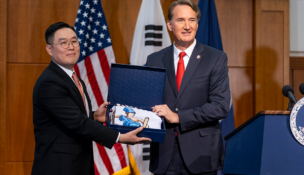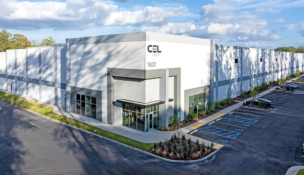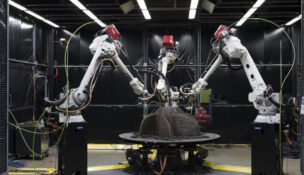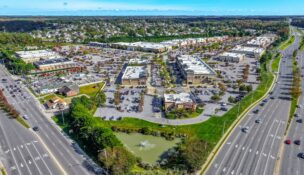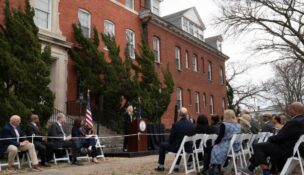$10M Biochar plant opens in Waverly
Facility will employ 15 workers
Beth JoJack //September 19, 2024//

State and local officials joined Restoration Bioproducts' employees and executives to celebrate the opening of the company's biochar plant in Waverly. Photo courtesy Restoration Bioproducts.

State and local officials joined Restoration Bioproducts' employees and executives to celebrate the opening of the company's biochar plant in Waverly. Photo courtesy Restoration Bioproducts.
$10M Biochar plant opens in Waverly
Facility will employ 15 workers
Beth JoJack //September 19, 2024//
Restoration Bioproducts‘ executives and employees gathered with state and local officials Wednesday to celebrate the opening of the company’s Sussex County biochar production facility.
Through a thermal decomposition process known as pyrolysis, the facility heats waste wood to high temperatures in an environment without oxygen to transform the material into syngas — a combustible gas that can be used for fuel — and biochar, a charcoal-like substance commonly used to improve soil health, as an animal food additive, and as an odor absorber.
It’s no accident that Restoration Bioproducts’ executives chose to build the facility next door to Wood Fuel Developers, a wood pellet manufacturer, in the town of Waverly. Initially, the Restoration Bioproducts’ plant will rely exclusively on wood waste from its neighbor as a front-end fuel for the system. Later, the company will need to source waste wood from other Virginia operations, according to senior partner Andy Raines.
Restoration Bioproducts, which has its headquarters in Lynchburg, has hired a manager and seven employees to work at the Waverly plant, which cost nearly $10 million to build.
Initially, Restoration Bioproducts leaders estimated they’d be able to build the plant for $5.8 million, but supply chain issues and inflation raised costs. “We were able to scramble around and raise the extra capital through our funding partners, but it did slow us down a bit,” Raines said.
Early estimates calculated that 18 months would be needed to build the plant. It ended up taking over two years.
To build next to Wood Fuel Developers, Restoration Bioproducts also had to figure out how to design the plant to fit on a site that’s a little over an acre.
“Normally, we would sort of spread ourselves out on, say, a 7-, 8- [or] maybe even a 10-acre site,” Raines said. Instead, the company decided to build up instead of out. Restoration Bioproducts’ Sussex County plant is 2,500 square feet and stands 60 feet tall, according to Raines.
Currently, the biochar plant is in a commissioning period, “when you turn everything on and see how it runs,” he explained.
Sometime in 2025, Raines added, the goal is for the facility to operate 24 hours a day, seven days a week.
“There’s an advantage from an efficiency standpoint and from a carbon impact standpoint to leave it at temperature and leave it running,” Raines said.
As production ramps up, more employees will be hired. “That’ll move us up to about 15 jobs,” Raines said.
Another goal is for the plant to eventually be fueled by its own syngas. “As we heat the wood, the gasses are pushed out of that wood, and we recirculate that to run the facility,” Raines explained.
Restoration Bioproducts plans to sell biochar produced at the plant for agricultural use. Biochar can improve soil’s fertility, yield and water retention. “We’re big believers in helping to heal the soil,” Raines said.
Additionally, the biochar plant provided an opportunity to companies looking to offset their emissions. Converting wood to biochar removes carbon dioxide from the atmosphere.
Restoration Bioproducts worked with Carbon Streaming in Canada to sell carbon removal credits that will be generated by the work at the Waverly plant. In September 2023, the carbon credit streaming and royalty company announced it had made a deal with Microsoft to buy credits generated at the Restoration Bioproducts’ plant.
“They stepped in early and said, ‘Great, great project. We’d love to have those credits,’ and they’ve spoken for those,” Raines said of Microsoft.
The Waverly facility is expected to deliver up to 10,000 metric tons of carbon dioxide removal credits per year, according to Carbon Streaming.
P




